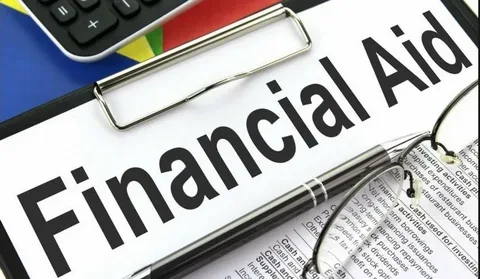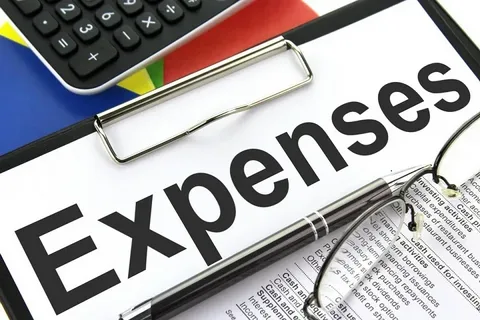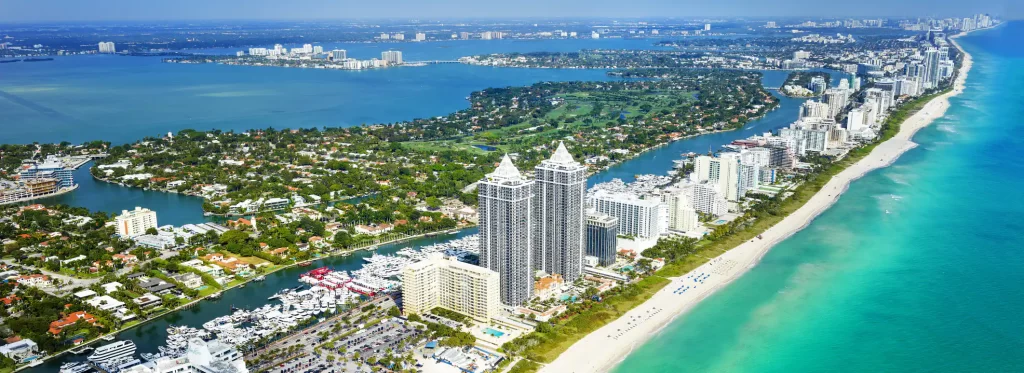Are you considering a career in real estate? If so, you’ve probably wondered, “How much does a real estate license cost?” Real estate has become a popular career choice, and for an excellent reason. It offers flexibility, earning potential, and the opportunity to shape your own professional journey. But before you dive into this dynamic field, it’s crucial to understand the investment involved—both in terms of time and money. In this guide, we’ll take an in-depth look at the costs of obtaining a real estate license in the United States, from pre-licensing education to exam fees—and even the costs of maintaining that license.
We’ll walk through real-life examples and breakdown expenses to make sure you get a clear picture of what it takes financially to step into this industry.
1. The Journey to Getting a Real Estate License

Getting a real estate license requires a few steps. You need to complete Real Estate Licensing Fees When Do Yo You pay pre-licensing education, pass the state exam, and cover application fees, but the expenses can vary significantly depending on your state and any additional certifications you pursue. Knowing the licensing requirements in your state will help you avoid any surprises.
Starting with the pre-licensing courses, there are mandatory educational requirements that cover essential topics like property management, law, and finance. Most states require between 40 and 180 hours of coursework, which often depends on the type of license (e.g., salesperson or broker).
For example, California requires 135 hours, while Texas demands 180 hours. As such, prospective real estate agents should first check their state’s requirements to plan out the necessary hours and associated costs.
2. Breaking down the core costs of getting licensed
Let’s get into the numbers. Here’s a cost breakdown of the key components involved in obtaining a real estate license:

- Pre-licensing courses: These courses can cost between $200 and $1,000, depending on the number of hours required and whether you opt for online or in-person classes. Online courses tend to be more affordable, while in-person classes may offer more hands-on training.
- Application Fees: Most states require you to pay an application fee, which usually ranges from $50 to $250.
- Exam Fees: You’ll need to take and pass a state licensing exam, which often costs between $50 and $100 per attempt.
- Fingerprinting and Background Checks: To maintain the industry’s integrity, states require fingerprinting and background checks, typically costing $30 to $100.
- License Activation Fees: Once you’ve passed the exam, you’ll pay an activation fee to obtain your license. This fee generally falls between $150 and $400, depending on the state.
- Continuing Education: After receiving your license, most states require continuing education to ensure agents remain knowledgeable and compliant with evolving regulations. These costs can range from $100 to $300 annually.
Case Study: Cost Breakdown in Different States
Let’s look at two states with different licensing costs—California and Texas—as a case study. In California, the total cost from pre-licensing to licensing activation can run from $700 to $1,500, depending on the course provider. By comparison, Texas might cost a bit more due to the higher number of pre-license hours required, with a total price ranging from $900 to $1,800.
3. Additional costs and membership fees
After receiving your license, you may want to consider optional but beneficial costs such as joining the National Association of Realtors (NAR) or your state’s Multiple Listing Service (MLS). These associations provide essential resources for real estate agents, including market data, legal support, and professional networking.
These memberships typically incur the following costs:
- NAR Membership: Around $150 annually, plus state and local dues, which can bring the total to about $600 per year.
- MLS Fees: MLS fees vary based on location but average $20 to $50 monthly.
These fees enhance your career by providing networking opportunities, legal resources, and the latest market insights—making them worthwhile investments for many agents.
4. Exploring Financial Aid Options for Pre-Licensing Education

The cost of pre-licensing courses can be daunting, especially for those entering real estate as a career change. Thankfully, some organizations and states offer scholarships and financial aid options to help offset costs. For instance, the National Association of Realtors offers scholarship programs for eligible candidates, while certain community colleges may offer discounted courses for state residents.
If you’re uncertain about the financial burden, how much does it cost to get a realtor license consider researching local or state-level assistance programs, as well as employer-sponsored opportunities, particularly if you’re joining an agency that offers training reimbursements.
5. Exam preparation costs: Tips to Success on your First Attempt

For some, preparing for the real estate exam might call for additional study materials or prep courses. Many pre-licensing packages offer exam preparation materials for an added cost, often between $50 and $300. Exam prep courses are a beneficial investment for those who want a focused review or struggle with test anxiety.
Real estate exam pass rates tend to hover around 50% to 60%, so investing in preparation can be crucial for avoiding the need to retake the exam—saving you both time and additional exam fees.
6. Post-License Expenses: What Does It Cost to Maintain a Real Estate License?

Once a license is obtained, there are ongoing costs to remain active in the industry. These expenses are equally important to consider, as they impact your annual budget:
- License Renewal Fees: License renewals generally occur every two to four years and cost between $50 and $200.
- Errors and Omissions Insurance (E&O Insurance) is a requirement for most brokers, providing protection against potential lawsuits. This insurance averages around $200 to $500 annually.
While these costs vary, budgeting around $1,000 annually for ongoing expenses, including renewal, insurance, and education, is a helpful baseline.
Estimated real estate licensing costs by state
1. Alabama

The cost of a real estate license in Alabama can range from $500–$800, depending on the school and course. The total cost includes:
- Course or package fees: $205–$641
- Background check: $48
- Salesperson license fees: $150
- Examination fees: $77
2. Alaska

The cost to get a real estate license in Alaska can vary depending on the school and course you choose, but generally ranges from $1,315–$1,632. Here are some other costs to consider:
- Pre-licensing education: This can cost between $300 and $600 for 40 hours of coursework.
- The cost of the real estate exam is $370.
- Licensing fees: These fees are $605.
- Post-licensing course: Within a year of receiving your license, you must complete this course, which costs between $200 and $400.
- Every two years, students must complete a continuing education course, which costs between $200 and $400.
- License renewal: On even-numbered years, you must renew your license by January 31 for a fee of $480.
To get a real estate license in Alaska, you must also:
- Be at least 19 years old.
- Pass the appropriate exam.
- Apply for licensure within six months of passing the exam
- Obtain and maintain E&O insurance.
3. Arizona

The following is included in the cost of obtaining a real estate license in Arizona:
- Exam The fee for the Arizona Real Estate Licensing Exam is $75, plus an additional $60 for first-time licensees.
- Fingerprint clearance card The cost of obtaining a fingerprint clearance card is $67. The card is valid for six years.
- Pre-licensing courses The cost of pre-licensing courses varies by school but can range from $300–$600.
- Continuing education Real estate salespeople must complete a six-hour continuing education contract writing course.
- Optional fees There are additional fees that can range from $150–$500. For example, joining the National Association of Realtors costs $150.
- The final school exam The fee for the school final exam is typically $25–$35 per attempt.
- State feesThe state fees, including the state final exam, fingerprinting, and the license, can cost over $200.
To become a real estate agent in Arizona, you must also complete 96 hours of approved pre-licensing education. Pass the course final exam, Obtain required documents, Choose a sponsoring broker, and apply for your license.
4. California

The cost of becoming a real estate agent in California includes a number of fees, including:
- Pre-licensing courses The cost of pre-licensing courses can range from $125–$700, depending on the provider and package. You must complete 135 hours of coursework before you can apply for your license.
- Exam and license fee The exam fee is $100, and the license fee is $350. The total amount owed to the California Department of Real Estate (DRE) under RE 435 is $450.
- Fingerprint fee The fee for the Live Scan fingerprint service is $49. The DRE uses Live Scan to conduct background checks on all real estate licensing applicants.
- Exam prep Exam prep materials and courses can cost between $100 and $250.
- Membership fees Membership fees for professional organizations can cost between $300–$700.
- Marketing expenses Marketing expenses can cost between $200–$3,000 per year. This includes business cards, property flyers, signs, mailers, a website, and paid advertising.
- Multiple Listing Service (MLS) The MLS is a database that provides shared information about real estate properties. The MLS can cost around $400 per year.
The state can change these costs at any time.
5. Colorado

The cost of getting a real estate license in Colorado includes fixed and variable costs:
Fixed costs
- Broker License Application Fee: $485
- Broker Examination Fee: $90
- Colorado Bureau of Investigation (CBI) fingerprint submission fee: $39.50 Variable costs
- Pre-Licensing education: Tuition and fees can range from $375 to $1,200
- Vendor fees: Fees for obtaining fingerprints
- Errors and Omissions Insurance: Can cost between $200 to $300 per year, but may be provided by brokerages
- State exam prep courses or materials: Can cost between $25 to $150
The total cost of getting a real estate license in Colorado is likely to be between $700 and $1,000. The state can change these costs at any time.
Real estate agents also pay annual membership dues to national, state, and local associations. The exact amount depends on the dues set by each association.
6. Florida

The cost of getting a real estate license in Florida can vary depending on the type of license, the school you choose, and other factors:
- Real estate agent The total cost to get a real estate agent license in Florida is typically between $270 and $700. This includes the cost of the pre-licensing course, application fee, exam fee, and fingerprinting fee. The pre-licensing course can cost between $100 and $500, depending on the school. The exam fee is $36.75 per attempt, and the fingerprinting fee is typically between $50 and $80.
- Additional costs After obtaining a license, there are additional costs to consider, such as membership fees for REALTOR® associations, MLS access, and license renewal fees.
The entire process of getting a real estate license in Florida can take 10 to 20 weeks.
7. Georgia

The cost of getting a real estate license in Georgia can range from $445 to $745 and can take 4–6 months. The total cost includes:
- Pre-licensing coursework costs between $199 and $279 for agents and $249 for brokers.
- License fee: $170 for both agents and brokers
- Exam fee: $119 for both agents and brokers
- Background check: Required for both licenses
Other costs to consider include:
- Brokerage desk fees can vary from $0 to $3,000 annually.
- Membership dues can range from $150 to $900 per year.
- The cost of continuing education courses can exceed $100.
- Marketing materials can range from $200 to $3,000 annually.
- Living expenses for 2–6 months
You must apply for a license within 12 months of passing the exam. If you don’t apply within that time, you’ll need to retake the entire 75-hour course.
8. Illinois

As of January 1, 2024, the Illinois Department of Financial and Professional Regulation (IDFPR) has increased real estate license fees in Illinois.
- Application fees: $100 for leasing agents, $150 for brokers, and $250 for managing brokers.
- Renewal fees: $100 for residential leasing agents and $150 for brokers
- License transfer fee: $35
- Late fee: $50 for missed renewal deadlines
The total cost of a real estate license in Illinois can vary depending on the cost of real estate classes and other licensing fees. Typically, the cost is between $522 and $872.
The exam fee for the broker license is $58. The exam consists of 40 multiple-choice questions on the state portion and 100 multiple-choice questions on the national portion. The exam allows four attempts, each costing $58. A passing exam score is valid for one year.
Fees are not refundable. Providing false or fraudulent information can result in losing one’s license, fines, and other penalties.
9. Massachusetts

The cost of getting a real estate license in Massachusetts can range from $400–$850 and includes the following fees:
- Prelicensing course: $200–$600
- Exam registration fee: $85
- Licensing fee: $103–$150
- PSI licensing fee: $12
- Test application fee: $31
- MLS access: $20–$40 per month
- E&O insurance: Around $30 per month
The first license’s validity extends until the third birthday following its issuance, resulting in varying costs. The state prorates the cost based on how long the license is valid.
The real estate exam is a multiple-choice test with 100 questions. You must complete the 80 questions in the national portion of the exam within 150 minutes. You have 90 minutes to complete the 40 questions in the state portion. To pass, you must score at least 75%.
Once you are licensed, you must renew it every two years on your birthday. The renewal fees for brokers are $142, business fees are $221, school fees are $264, and school branch fees are $147.
7. How do real estate costs compare by career path?
If you’re weighing career options in real estate, such as becoming a broker rather than a salesperson, be aware that the costs increase with greater responsibilities and earning potential. Brokers typically need additional education and experience, which means higher initial costs for schooling and licensing and possibly greater ongoing costs for continuing education and insurance.
[ruby_related heading=”More Read” total=5 layout=1 offset=5]
8. FAQs
Q1: How much does a real estate license cost on average?
A real estate license typically costs between $500 and $1,500, depending on your state and choice of educational provider. This includes the cost of pre-licensing education, application, and exams.
Q2: Are there any financing options for real estate licensing education?
Yes, scholarships and financial aid options exist through associations like the National Association of Realtors and some state programs. Research these options if you’re concerned about covering the upfront costs.
Q3: Do I need to join a Realtor association?
No, it’s not required to join an association, but becoming a member of the National Association of Realtors provides access to resources and market data that can greatly benefit your career.
Q4: How often must I renew my real estate license, and what does it cost?
Renewal periods vary by state, typically every two to four years, with fees generally between $50 and $200.
Q5: What happens if I fail the real estate licensing exam?
If you don’t pass the exam, you can usually retake it for a fee, but the number of attempts allowed varies by state. Some states permit unlimited retakes within a certain timeframe, while others have limits.
Conclusion
The question, how much does it cost to get real estate license? It encompasses more than just a single cost. From education to licensing fees and continuing education, the financial investment varies based on location and career goals. But with thoughtful planning and awareness of potential costs, this investment can pay off as a stepping stone into a promising real estate career. Remember, a real estate license isn’t just a piece of paper—it’s an entry pass into an industry that offers boundless opportunities for those willing to invest in themselves.











